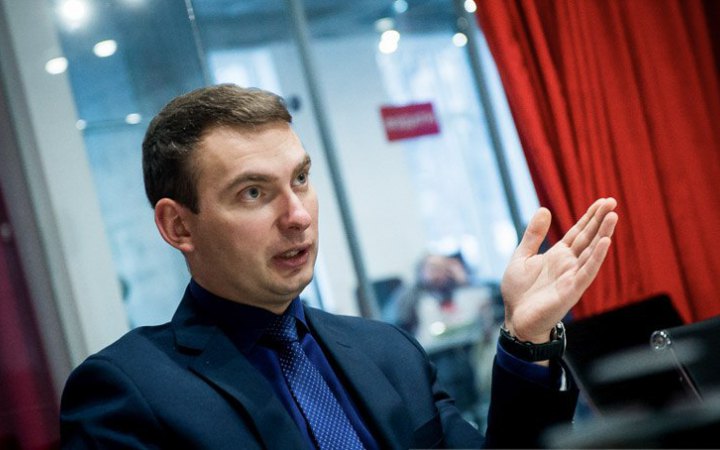"All possible consequences of the default have been already in place for Russia"
Large-scale sanctions have been imposed on Russia, including on its financial sector. But are there enough of them? When should we expect a default?
The default in Russia is inevitable. The only question is when. And it depends on what will cause the default - there may be two reasons for that. The first is the lack of money. The second reason is the inability to pay off debts technically.
Will Russia have enough money? Yes, it has enough because they were preparing for the war. If we analyze the entire economic situation in Russia since 2014, they have been accumulating resources all this time.
Russia's gold and foreign exchange reserves have grown from a relatively smaller amount of $400 billion to $640 billion. I emphasize - since 2014. For better understanding, I should say that this amount is equal to 29% of the GDP of the aggressor country. Russia has also been accumulating gold, and now it holds the world record for gold reserves.
At the same time, the foreign debts in Russia have been reduced. To understand it better: in 2014, they had $733 billion in debt, and in 2022 - $480 billion. So the truth is that the aggressor has a good margin of financial strength.
The only thing that has failed in Russia's plans is that they can no longer use part of these resources (more than half of their gold and foreign exchange reserves). Most likely, Putin did not inform his financial unit about his plans for a full-scale war. The central bank did not protect this money, and now it is stuck in European and American accounts. However, a significant part of the accumulated financial resources in Russia remains. Therefore, there will be no quick default due to its inability to pay.
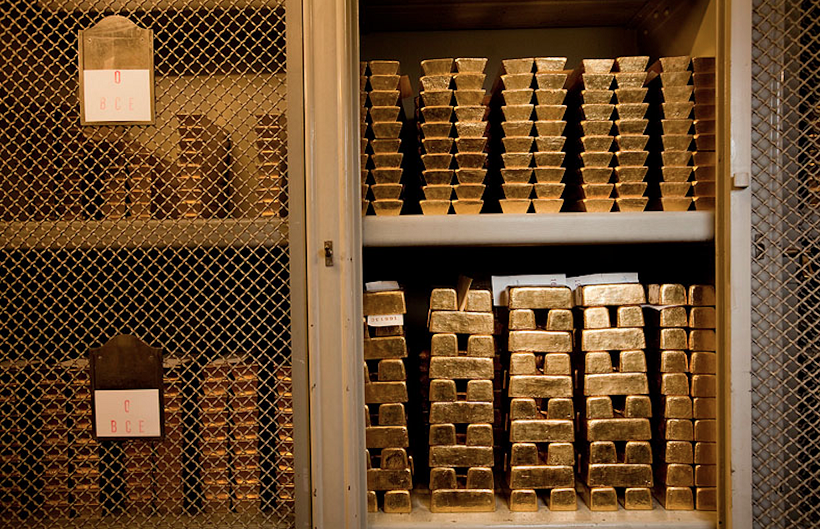
However, there is another possibility - a technical default. Simply put, [it triggers] when there is money, but the borrower cannot pay for debts. This option is quite realistic. A technical default could have occurred on April 16 if Russia did not pay its debts on March 16. However, the United States, with its orders to OFAC / Treasury Department [US Office of Foreign Assets Control and US Treasury Department - LB.ua], let Russia not default by allowing it to pay the currency until May 25. In fact, the States have extended the license to pay.
Now the question arises: what will OFAC do after May 25? If it does not renew the GL9A license again, the countdown to technical default will most likely begin for Russia on May 27. The possibility of declaring Russia's default is not in Putin's hands. It is in the hands of the United States, OFAC, and the Treasury Department.
Recently, the Ministry of Finance of the Russian Federation paid off another debt from bonds worth $102 million and also offered creditors to receive early payments from Eurobonds in rubles. Moscow also requires Europeans to pay for gas in rubles. But so far, the world does not accept Putin's terms. What can such tactics lead to?
I can say that Putin's tactics in the financial domain are no different from the military ones. The statement on payment of debts in rubles is one of the proofs. Putin speaks and then looks at the reaction. If international partners swallow it and go by his terms, he will pay in rubles as he sees fit. If he meets resistance, he will find excuses to give it up. The same situation was with the requirement to pay in rubles for gas when European countries did not accept his terms and said they would continue to pay in foreign currency, as stipulated in the contracts. That is how Putin checks the whole world for its "weakness".
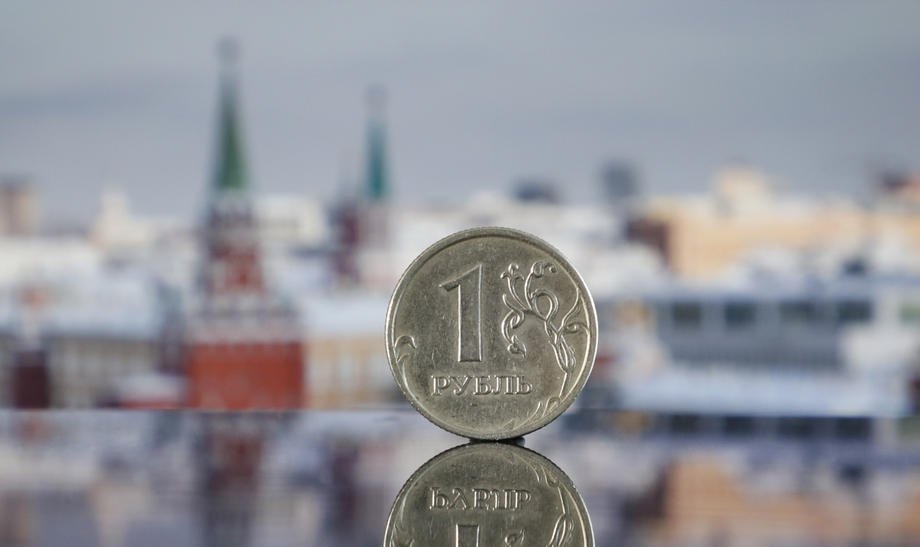
The proposal of the Ministry of Finance of Russia to pay in rubles had two target audiences. The first was greedy investors from America. They were given a signal from Russia: either we would never pay you anything at all, or you take it in rubles. The second target audience was domestic investors. He meant to present it as: the state will likely let you down, but we can now help you get at least rubles while transfers in dollars from abroad are blocked. I believe that this case was a test of greed offered by Russia
The next debt payments are due on May 27. Could this be a 'doomsday' for the aggressor's financial system?
On Tuesday, we learned that the United States had banned Russia from paying sovereign debt from frozen foreign currency accounts in response to Russian military war crimes in the Kyiv region.
Russia now has three options. The first is to refuse to pay, which will lead to default. The second is to make payments in rubles instead of dollars; it is also equal to the technical default. The third one is to pay in dollars from the foreign exchange reserves and revenues that it has as a financial cushion. But this will mean not only a violation of its own order not to pay debts in foreign currency but, more importantly, - the depletion of the remnants of its foreign exchange liquidity in an environment where sources and opportunities for the dollar to enter the country are dwindling.
And another important factor. Unlike other countries, Russia is sure to start having problems from the bottom-up. A significant number of its debt obligations are non-governmental. They amount to only $40 billion and $28 billion denominated in rubles for the state or a total of $68 billion in government liabilities. And that's very little.
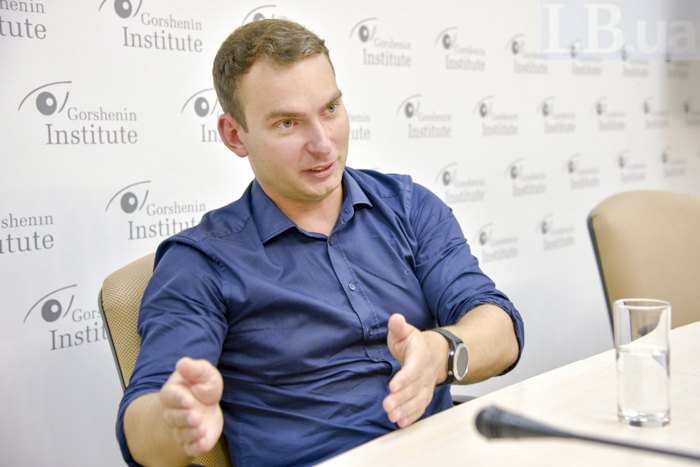
However, about $100 billion is the amount of borrowing by state-owned companies. They have already started having problems with payments because they have come under sanctions. Usually, their transit banks are JP Morgan or Citibank. These banks have already stated that they do not accept payments on bonds due to sanctions.
It may cause cross-defaults when all creditors simultaneously sue companies. And it will be the start of massive problems inside Russia.
Concluding the topic of default, I would like to emphasize that it does not matter to Ukraine when it occurs because all the possible consequences of default have already come for Russia. They are cut off from the capital market, have problem debt, and working with them is toxic. All international organizations kicked them off. And I am not even talking about the moral default of the country after all the atrocities it has committed on our land.
"We used to shoot from 'bazooka' at the Russian market, and now we are shooting from a sniper rifle"
International companies are leaving the Russian market. But some continue to work with the aggressor. Does your parliamentary committee constantly monitor this list?
It is a difficult question. Yes, some companies did not fully abandon the occupier's market but only set some restrictions. About 38 companies did not refuse to cooperate with the Russians. Everyone can hear Leroy Merlin, METRO, Huawei, Raiffeisen Bank, and others. After the horrific Bucha massacre, the French grocery retailer Auchan announced its withdrawal from the Russian market only on the 41st day of the war.
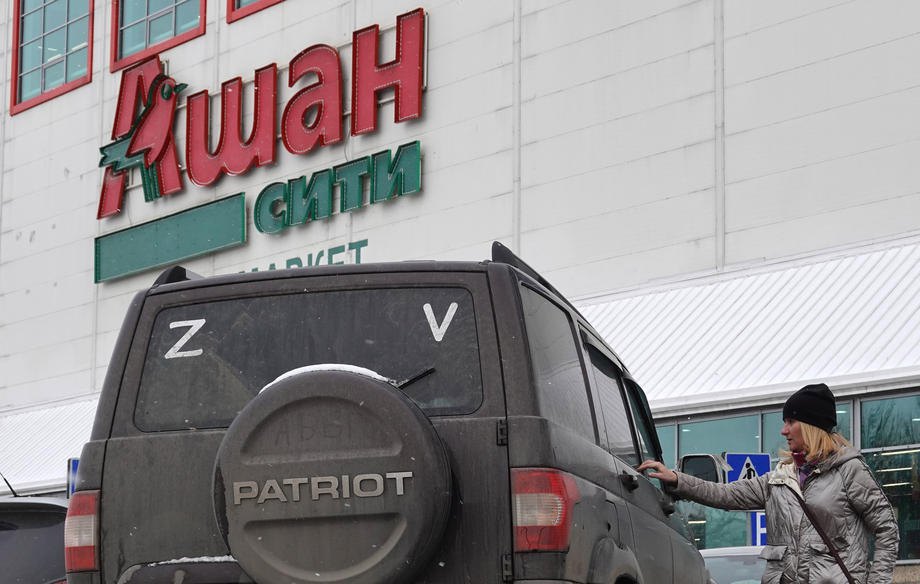
Another 69 companies are 'buying time'. They have stated that they will not make new investments in the Russian market, but they continue to work. A striking example is Colgate-Palmolive Corporation, which continues to supply health and hygiene products. Tetra Pak is also misleading with its statements, saying it is leaving only the production of packaging for vital products and baby food. A month later, we learned that they have been producing packs all the time, even for wine.
We have been following all these examples since the beginning of the war. Several of our teams work with embassies and communities. We organize Twitter storms and protests in different countries, targeting specific companies. And I can say that our result so far is not bad. If we take the 500 largest international companies operating in Russia, 400 have already taken tangible steps to exit the market. We are 'finishing' another hundred companies.
And every day, there is news about new companies leaving Russia, such as Jysk, Carlsberg, and Renault. All this is a dynamic process. Therefore, our economic front is very similar to the battlefield. If earlier we fired at the sizeable market of the Russian Federation from 'bazooka' [antitank hand grenade launcher - LB.ua], now we shoot those who remained from a sniper rifle.
The main thing is that we already know how to do it. All teams at different levels have synchronized their work. Therefore, we are gradually finishing every company.
The most problematic at the moment are French and Chinese companies— working with them is the hardest. First, because of the positions of the states themselves. It is no secret that Macron gathered representatives of his companies and said that there was no urgent need to leave the Russian market. The same thing we see in companies from China. At the same time, China, France, and even the UAE are all gradually changing their position and, in some ways, are ending their work with the Russians. They [do so because they] consider double sanctions, observe that all supply chains are broken, or receive pressure from competitors, investors, or customers.
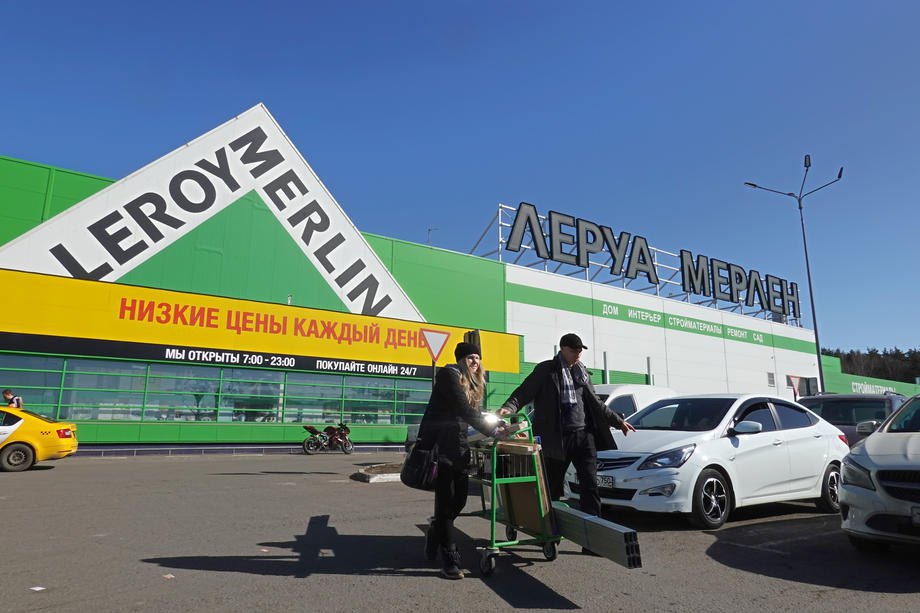
Russia's Ministry of Trade has introduced a list of goods that can be imported without permits. That is, they legalized counterfeiting. Also, as you previously wrote, Russia has a strange import substitution policy. For example, they still promise to introduce their own payment service SPBay instead of Apple and Google pay.
Ukraine is again lucky in this case because of Russian corruption. As in the military component, because of the greed of Russian officials, who want to make money at the expense of the state, not all of their missiles, fortunately, exploded in Ukraine.
We are infinitely grateful to every corrupt Russian official for the money that has not reached the investment in import substitution in the economic sphere. There was a lot of expectation for import substitution, but now Russia has a big problem with it.
For example, they can develop an application similar to ApplePay to make payments. But then simple problems arise: how to download it to the markets of Google or Apple applications, re-equip all terminals, and so on. I am not even saying that it will not be possible to use it abroad. In addition to the promised SBP, they already have Mir Pay, which does not work.
Therefore, all the "import substitution" in Russia takes place without any possibility of its integration into the outside world.
It will apply to anything else, too. For example, Russia simply stole a large number of leased aircraft. It has already received a lawsuit for $3.5 billion for this. At the same time, they have probably forgotten that these stolen planes need to be serviced. And an airplane is not even a car. One can't fly on it for a year without repairs. Nobody supplies spare parts for planes [to Russia] anymore. The service process itself is quite complex and certified. It is also impossible to make a simple diagnosis without special software. While some planes are still flying to China, most likely, they will not be able to reach the endpoint at a certain stage.
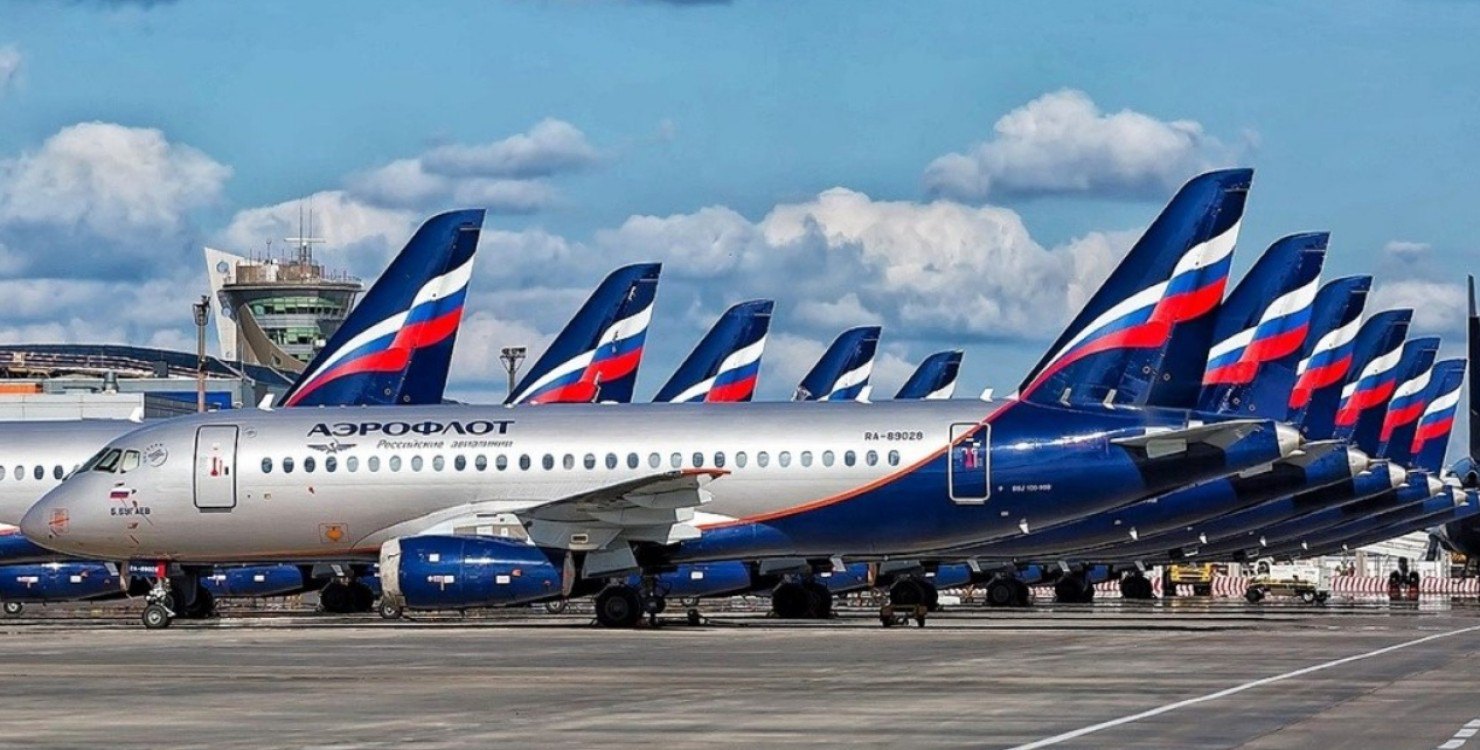
Russia wanted to build its own planes. But there is a problem. About 90% of them had to be constructed from parts produced by Boeing, Airbus, and other foreign manufacturers, which currently do not supply their products to the aggressor country. That's it! Russian corrupt officials have not provided aircraft construction without imported components.
The situation is the same everywhere. The Lada car is already difficult to produce because there are no conductors and microchips; Russia does not even produce banal bearings.
The world, of course, must not stop imposing new sanctions on Russia. But even those that have already been introduced are felt even by an average Russian. Unfortunately, most of them support the war. However, when they can't go to McDonald's, or have to stand in line at Colin's for three hours, or can't use the subway because of a bank card lock, go on vacation, buy regular toiletries – all of this, I hope, will make them think and question the policies of their leadership, as well as the quality of life in their country. And these consequences of the sanctions are also very important.
"Russia receives almost $1 billion a day payments for its energy resources. Therefore, sanctions are still weak"
But Europe continues to sit on Russia's "gas needle". There are only individual promises. For example, Poland has already announced a complete abandonment of Russian energy resources by year-end. However, Germany insists that abandoning Russia's energy will be very costly to the economy. Hungary and Slovakia are ready to pay in rubles for cheap gas. Thanks to the United States, the situation with oil is more optimistic. Russia is already offering oil to India at a discount of $35 per barrel. However, the energy trap by the Russians is doing a terrible thing. Is the full embargo, which Ukraine is calling for, possible?
Russia is rightly called a "gas station country". They have the economy relying on raw materials.
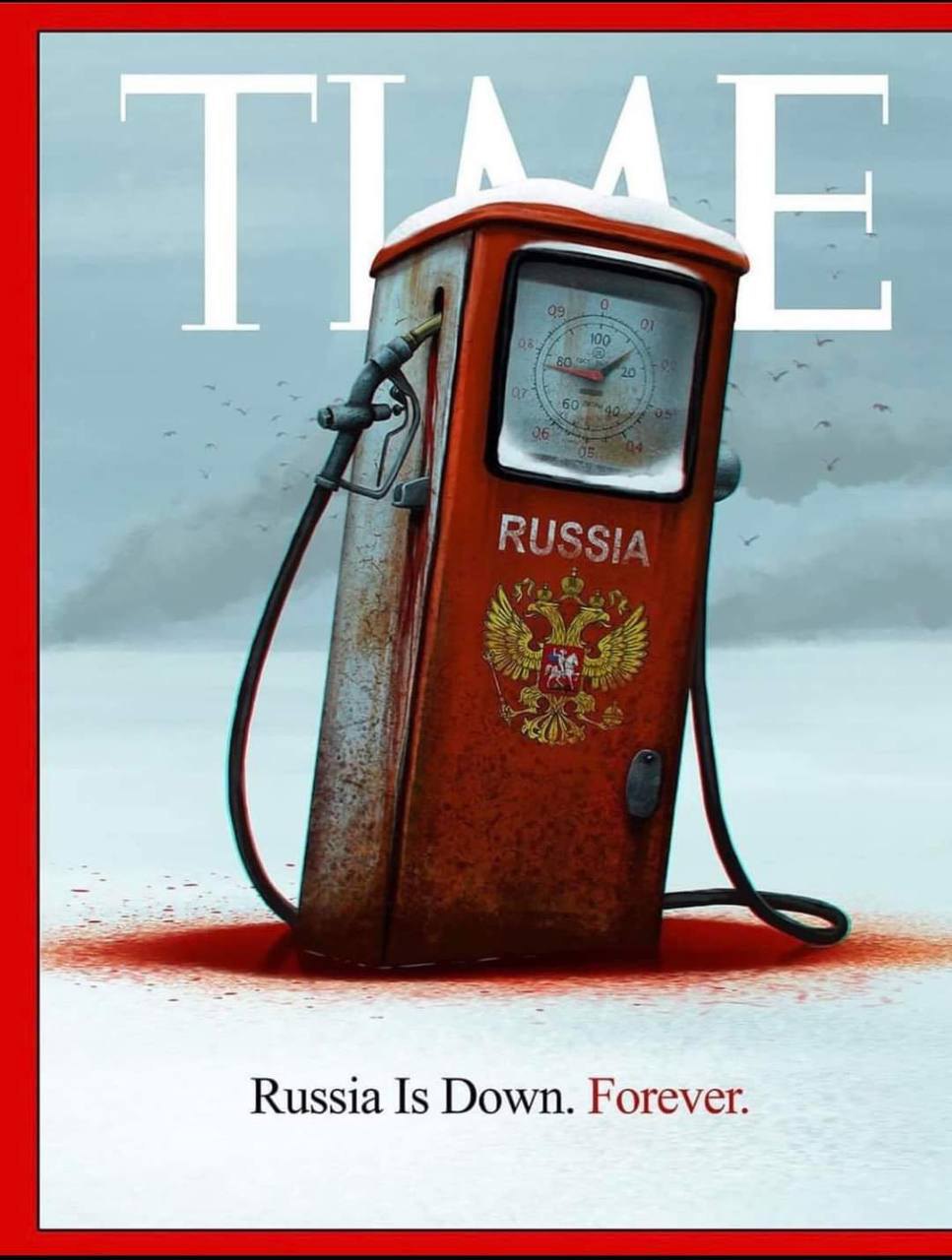
Ukraine was also called raw material economy. However, our economy is more complex. Growing sunflowers and exporting seeds and oil requires a complex process involving many economic actors.
Russia simply produces oil and gas and supplies them to different countries. It helps make money without spending too much on the maintenance of the extraction process itself. Since 2014, they have had very modest budgets for maintenance and extraction.
In addition, the EU pays $800 million for Russia's energy every day. Russia receives about $1 billion a day for its energy sources. If we count the money they spend on the war in Ukraine, we can see that they have a positive balance at the end of each day, even from this money. So they can finance both the war against us and their budget. The connection is very simple.
Therefore, our main goal is to hit the most painful part of the Russian economy: gas and oil. And maybe a bit on the diamond stock. But oil, gas, and metals are where we all need to fight together to suffocate them economically.
How can this be done in reality when EU countries are dependent on Russian gas, and not everyone is willing to pay a higher price?
The Americans are doing prominent work in this regard. They imposed a total embargo. As to Europeans, there are questions indeed. Germany is fully dependent on its oil and gas, especially gas.
What should we do? Demand further sanctions and restrictions. One way or another, this process continues. Of course, it should be much faster and more comprehensive. And thanks to it, in a way, Poland, Denmark, and Great Britain have announced ambitious goals of abandoning Russia's energy resources and are taking steps in this direction.
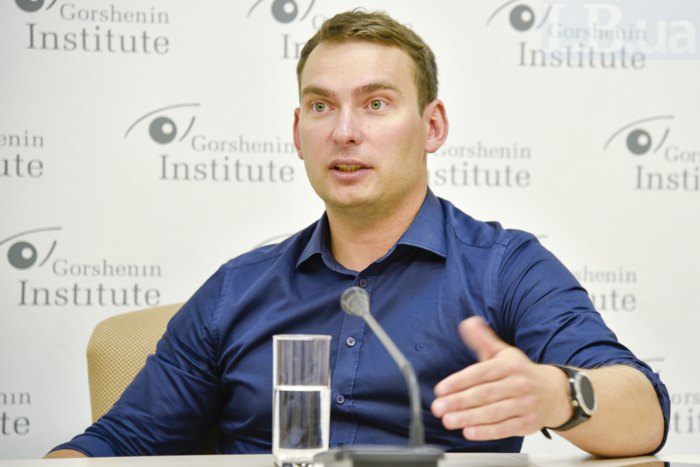
The second thing that needs to be done is to hit energy payment transactions. Putin is an ordinary "gopnik" [post-soviet gangster]. As I came from Mariupol, I can say that his behavior is no different from that of guys "controlling the territory" some 18-20 years ago, only on an international scale.
Luckily, this time to his demands for payment in rubles, the Europeans told him to follow the Russian warship. Europe has made clear that they will pay in dollars or euros or will not pay at all. Putin ugly threatened to cut off gas supplies through Yamal-Europe. Finally, Europe realized that it was not a civilized leader of a modern state but an ordinary blackmailer. Eventually, Europe reacted to these actions; it threatened him in return and won this battle – Russia withdrew its threats. That is why such aggressive steps of internationals also help our victory.
The third important direction comprises sanctions against all banks. It is still possible to make payments from abroad through key banks, so Russia receives currency for its energy every day. While this is happening, the effect of sanctions is insufficient. Therefore, the largest banks that process the largest oil and gas payment transactions should be disconnected from SWIFT. If sanctions are imposed on all banks without exception, then the ban on settlements with Russia will be in full force. This will work against the aggressor even without a full embargo on oil and gas.
The fourth thing is to block Russia's ability to develop new oil fields as much as possible – this is what Naftogaz is already doing on the Ukrainian side. The whole complex process from well development and drilling to production is organized in Russia not by local companies but by the world's four largest oil service companies. As the "big four" in the audit, they control the maintenance of the oil production process. Their decisions on reducing investment and abandoning further projects will lead to problems with the maintenance of Russian wells, hence a drop in production.
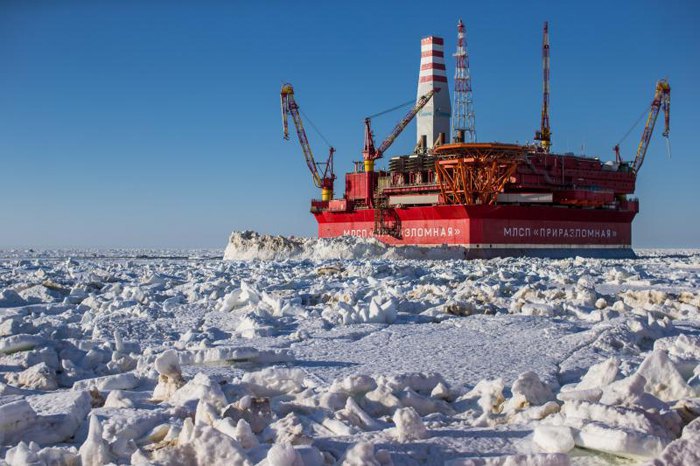
The best option for Ukraine would undoubtedly be the world's answer: "Leave your oil and gas to yourself! When your regime changes, we may reconsider [whether we need to get back]."
Unfortunately, some of our international allies are stuck while people die in Ukraine. Therefore, we must slow down this process by talking to the extraction and maintenance companies working with Russian resources. We already have successful examples of such work. There is a joint Serbian refinery with Gazprom, to which Russian oil was transiting. But thanks to Croatia, it has banned this transit. And now, Russia cannot supply this oil to Serbia. It helps not send the money to the Russian budget.
We have already made a list of companies that cooperate with Russia in the energy sector. One way or another, all these companies must also be forced to leave the Russian market due to public pressure. Or secondary sanctions should be imposed on them, particularly by the US regulator. US sanctions on such companies would be equivalent to quick bankruptcy. I don't think any of them may want to take that risk.
"Every day, Ukraine spends on war 10 billion hryvnya from the budget"
We get updated figures of total losses of Ukraine's economy and infrastructure from the war almost every day.
At the moment, we can talk about the direct losses of Ukraine. Also, the loss of revenues because the economy does not work or works in a very limited format. The latest amount of losses of Ukraine due to the war publicly announced by the authorities was $562 billion. Prime Minister Shmyhal has already talked about $1 trillion. The Kyiv School of Economics (KSE) estimated $68 billion in the loss of housing and property of Ukrainians alone.
Frankly, it is impossible to calculate the actual losses now. For example, my sister's house in my native Mariupol burned down completely. I saw it in the photo, but it is not considered in the losses, like many other buildings, because now it is impossible. The fighting continues, and we do not see every destroyed building or plant. There are many such examples now.
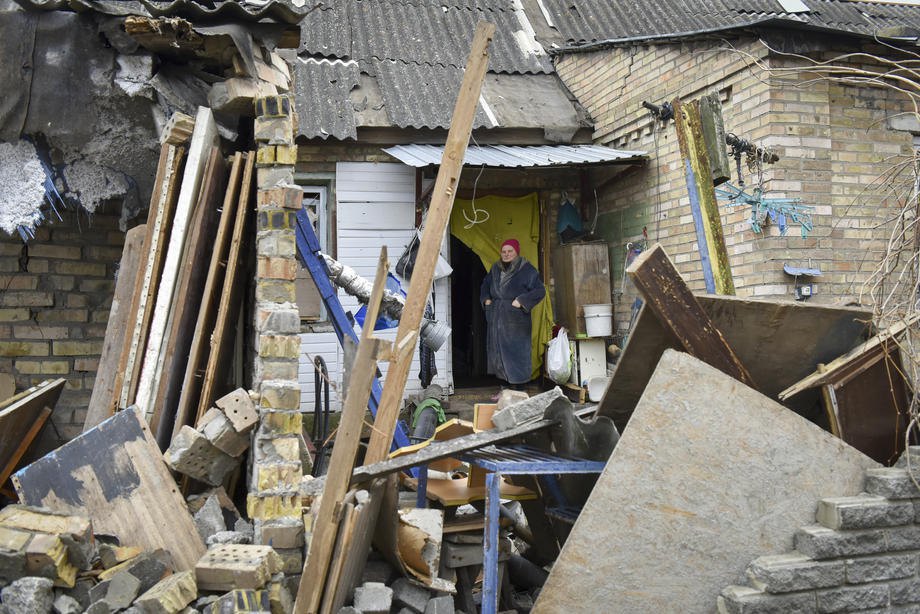
The budget also does not receive the planned revenues because of the war. For example, customs payments in March were lower – instead of the expected 39 billion hryvnyas according to the plan, we received only 7 billion hryvnyas. Of course, this is a small amount. There are also problems with tax payments.
Despite all this, we are "saved" by overfulfilling the budget during previous periods - it gave us an additional almost 20 billion hryvnyas. In addition, state-owned companies paid their tax liabilities in advance.
For example, Privatbank paid 28 billion hryvnyas in advance. The National Bank transferred 18 billion hryvnyas of its profit in February. According to the Ministry of Finance, we received external infusions into our economy – more than $3 billion. And still, the Ukrainian economy is experiencing difficult times now.
To make further assessments, one needs to understand how the Ukrainian budget works now. We spend most of our funds on military needs. There are no exact figures, but approximately 10 billion hryvnyas a day, which is a huge amount. In addition, we have protected expenditures: salaries for state employees, teachers, doctors, and so on. In addition, there are expenditures to support people during the war. Under the "e-support" program, individuals received 6,500 hryvnyas each - only this program cost us almost 20 billion hryvnyas. Support for internally displaced persons also continues.
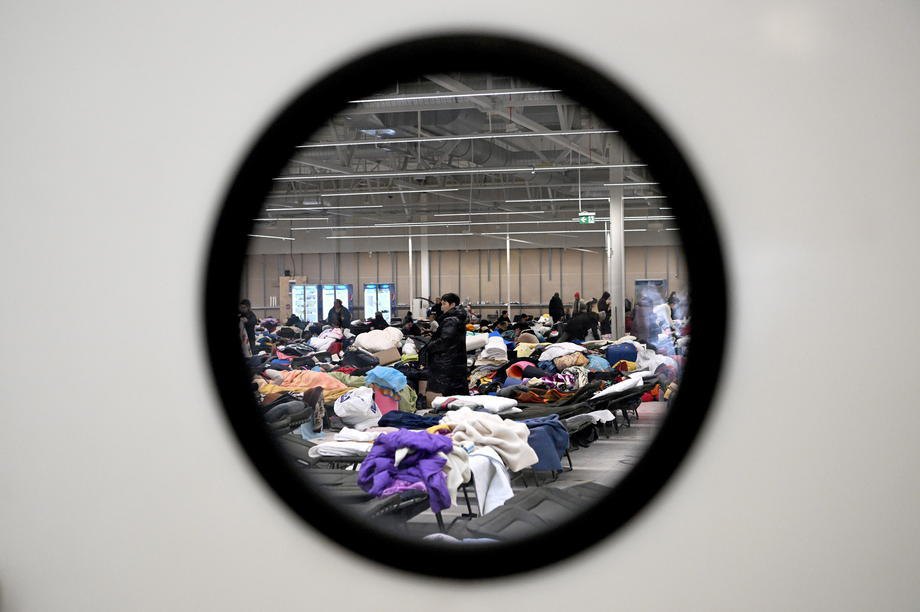
Although I represent the opposition, I can honestly say that I am extremely pleased with the work of our financial system during the war. I believe that the stability of all state financial "pillars" is a great contribution to our Victory. The key financial institutions were ready and worked well. There have never been any failures in payments. The Ministry of Finance works like clockwork. I communicate with the Minister and his deputies every day. Everyone is connected, working quickly and efficiently. Together with the Ministry of Finance, we have prepared a law on raising taxes by 50% for companies that continue to cooperate with Russia.
Importantly, our financial institutions have worked out and prepared for possible scenarios in advance. Therefore, there are no problems with the Treasury, the payment system, and the National Bank. The entire banking sector has survived. We have no "collapsed" bank. None! There were some problems with card payments only at the beginning of the war. And only because some entrepreneurs were simply afraid to accept non-cash payments. This issue was quickly resolved.
The banking system is now stable. We are not afraid to give a 100% guarantee on deposits in state and private banks.
One of my immediate areas of work is the National Securities and Stock Market Commission. Therefore, I can confirm that this sector also works. Military bonds, raising extra money – everything works. Financial sector: Ruslan Magomedov (Head of the Securities and Stock Market Commission), Kyrylo Shevchenko (Chairman of the National Bank of Ukraine, NBU), Serhiy Marchenko (Minister of the Ministry of Finance), Yulia Svyridenko (First Deputy Prime Minister and Minister of Economy), Rostyslav Shurma (Deputy Head of the Office of the President), - they all work very smoothly, together with the committees of the Rada and deputies.
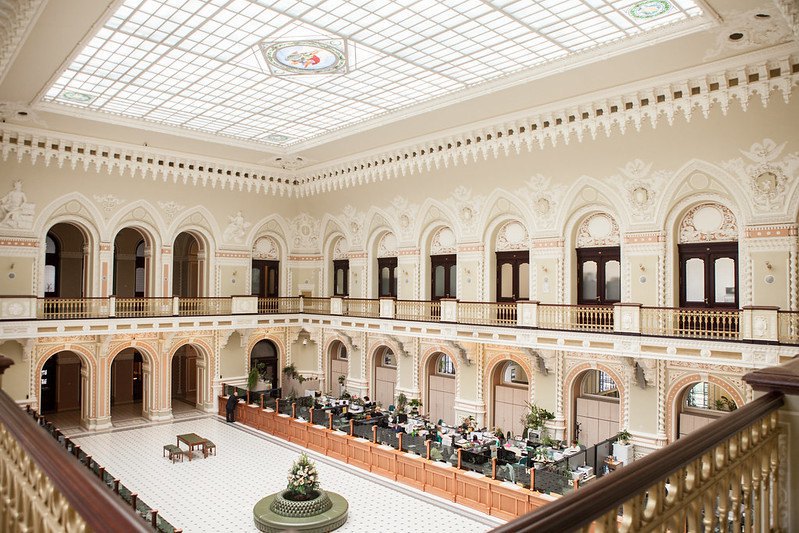
Our Finance Committee in Parliament prepares all legislative initiatives as quickly as possible. We help write laws and then vote in the session hall of the Verkhovna Rada. I think that all of this will be included in textbooks on economic history, explaining how the economy should work during the war. I do not exaggerate. Recently, the parliament voted in favor of my proposed law on expanding the powers and opportunities for the National Securities and Stock Market Commission so that those foreigners who want to help can invest in Ukrainian securities in dollars and therefore invest in our Armed Forces.
External revenues also help compensate for losses, such as the revenues from customs duties.
In addition, Ukraine fulfills all its external commitments and demonstrates that we remain a reliable and predictable partner.
According to the most optimistic estimates, any war leads to a loss of at least 35% of the business. This share represents those who stopped working. I think in our case, we can talk about a higher percentage. We need to discuss this problem and seek a solution to rebuild the economy after such losses.
The fact that the financial system has withstood the challenge of the war and remains stable, even compared to other countries with the war experience, helps us a lot now and will help in the future.
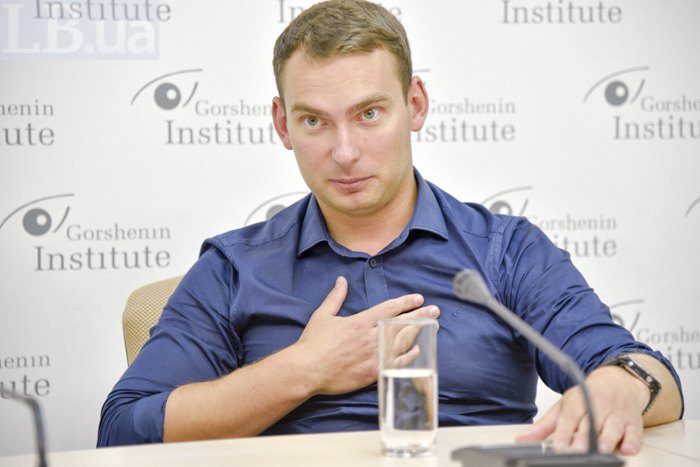
Is there a financial reserve to continue holding the line?
We understand that Russia has already begun the tactics of the war of attrition. But the fact that we have maintained the financial system since the beginning of the attacks gives us confidence. We will see who will be the first to give up after all the financial difficulties of the war.
With the reduction of revenues from customs, taxation, and huge military expenses, will the financing of the protected budget lines be sustained? Is there any threat of non-payment of salaries to state employees?
If we avoid additional military problems – and it seems that, fortunately, our Armed Forces provide adequate protection while we respond to them by providing a strong rear – then everything will be fine. Of course, we are very much dependent on the financial support of the world. The most active work in this direction is through embassies. It is very good that our ambassador to the United States is the former head of the Ministry of Finance, Oksana Markarova. There is support, including direct financial support, from other international allies. I predict that we will have enough funds and avoid problems.
Our finance committee also works in this direction. For example, we could either leave the taxation without changes and take more money from the business or relax it to make the business work. And we have chosen to help businesses and restart the economy, and we are grateful to all our colleagues who have supported it.
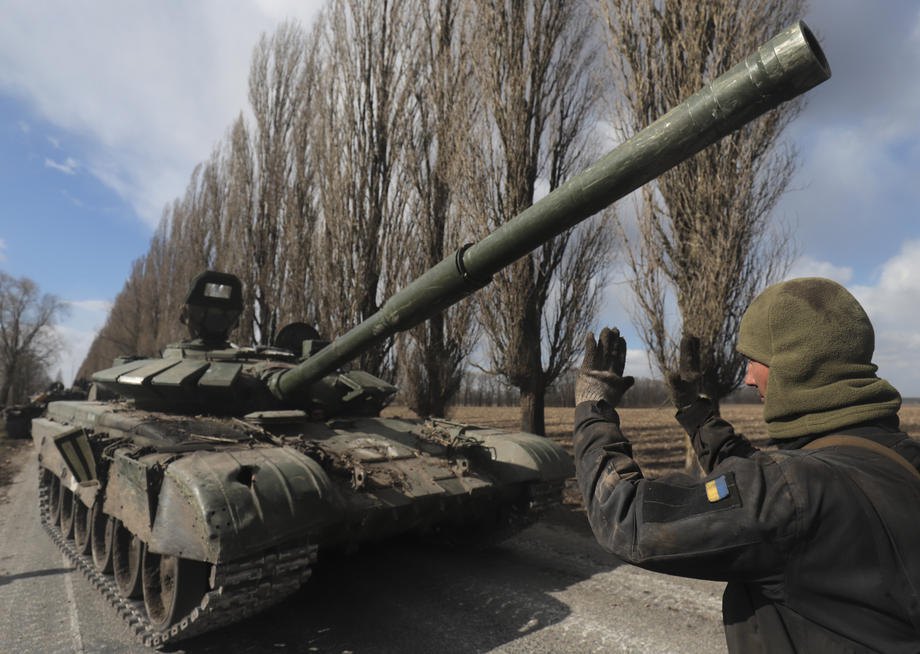
"The Verkhovna Rada has already adopted four' tax packages' for businesses"
The second option was chosen. The Rada has already adopted a whole package of tax changes.
Yes. We have already supported four "tax packages". To summarize them, we removed all inspections, allowed businesses to work using very simplified procedures, and allowed the small-size entrepreneurs not to pay taxes or choose to pay if they could. And we allowed the large business to move to a simplified taxation system. Now they pay just 2% of turnover. It is the simplest system possible. Namely, from earnings of 100,000 hryvnias, one can pay just 2,000 hryvnyas taxes in wartime. A business relocation program has also been launched.
Have more than a hundred companies already applied online?
Yes. The application is submitted online. All links are published on the social media of our committee and the Ministry of Economy. The system works. Many companies have already moved to western Ukraine. However, there were some logistical problems. It is good that Ukrzaliznytsia has joined the process of enterprise "evacuation".
We have also simplified the procedure for importing goods through customs so that all goods can enter Ukraine quickly.
And for those companies that continue to cooperate with Russia, we will increase the tax burden by 1.5 times.
In the first reading, my colleagues and I have already voted for this law. We are working with the government to attract cheap loans, including by amending the legislation. I think that we will do it fast and with high quality.
There is no politics now. After February 24, I personally never criticized the government. Because now we are one team that works only for the result and our Victory.
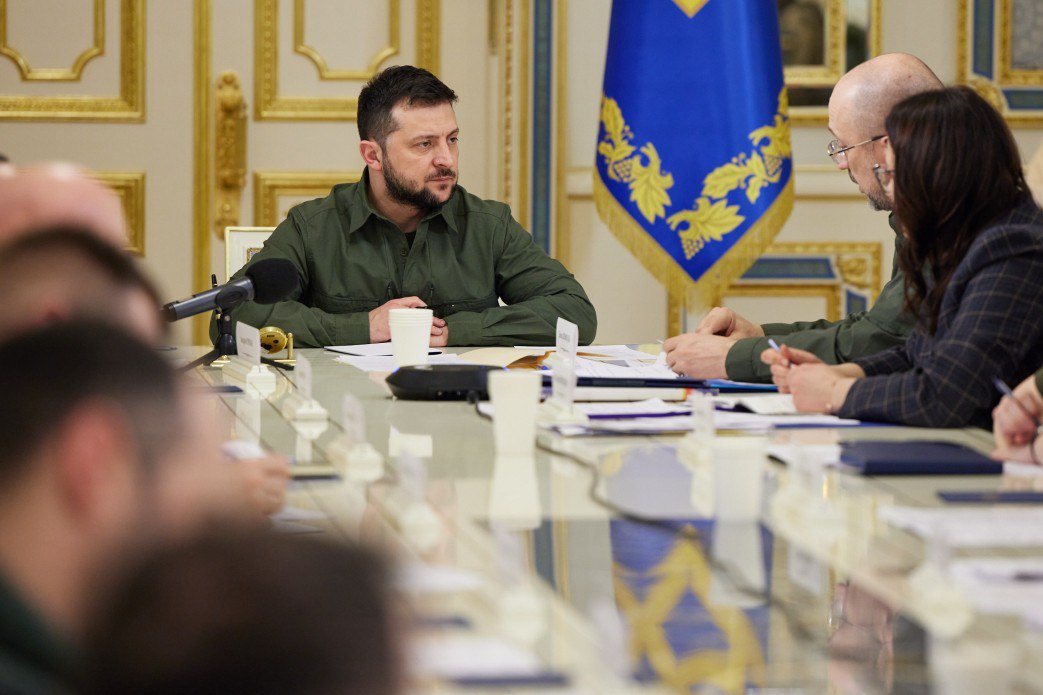
At the beginning of the war, the Head of the Accounting Chamber, Valery Patskan, stated the need to revise our debt obligations. Is it realistic?
Valery Patskan later clarified his statement. We have all discussed this option.
But the logic of the Ministry of Finance, offered by Minister Serhiy Marchenko and the Commissioner for Public Debt Management Yuriy Butsa, is currently correct. Because our payments are small now, we can safely service them. It is more important to show the world that Ukraine is fulfilling its external obligations and remains a predictable partner even in such a difficult time. We do not offer payments in hryvnya or other savage actions. All ratings of the state and Ukrainian companies are maintained, and they are much better than in Russia. All this helps us raise more money. Thanks to this approach, we are not afraid to borrow even under these circumstances.
For example, we sell military bonds for about 5 billion hryvnyas every week. I hope my legislative initiative to simplify raising funds through foreign currency bonds will come into force soon.
Our task now is not only to reduce the tax burden but also to raise more money. Preferably for free or at a low interest rate. This policy is already being implemented by the Ministry of Finance and the National Bank.
It is vital to raise money at interest rates in the long run. Free help is unpredictable – today we have it, tomorrow we don't – charity is usually not offered for a long time. Then, of course, borrowing countries may have questions about the appropriateness of funding and the need to reduce its volume. By being ready to raise funds at the minimum interest rate, Ukraine is just showing that it can and will continue to fulfill all its obligations. It will make it possible to attract even more borrowings. This strategy of the Ministry of Finance, in my opinion, is the only correct for today.
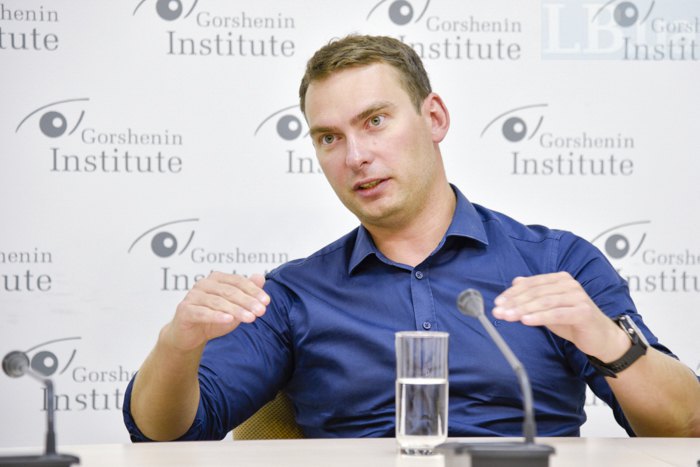
"For Ukraine, war is a challenge and an opportunity"
Prime Minister Denys Shmyhal has already announced the start of preparation of the Post-War Recovery Plan for Ukraine. Is the Finance Committee involved in its development? What should be the Marshall Plan for Ukraine?
There is a high demand for such a plan from our side and our international partners. There are few examples of sufficiently effective economic recovery after the war. Since the end of the Cold War, there have been 120 military conflicts around the world in more than 40 countries.
The least successful examples of recovery are Afghanistan, Bosnia and Herzegovina, Angola, and Azerbaijan. After analyzing the situation in these countries and the war in Ukraine in 2022, we understand that our situation is different. These are not the examples we should follow.
For Ukraine, in my opinion, the most relevant examples for us are the restoration of Israel, Japan, and West Germany.
We can already see a lot of destroyed industries, infrastructure, and other facilities. Accordingly, we will have a huge need for financial resources for recovery.
But no one will make direct subsidies to the Ukrainian budget. If we analyze the history of the Marshall Plan and the history of aid to West Germany, the money did not flow directly to the country's budget. Assistance was provided through the supply of goods by the government to businesses, and then the money went from the budget to finance capital investments.
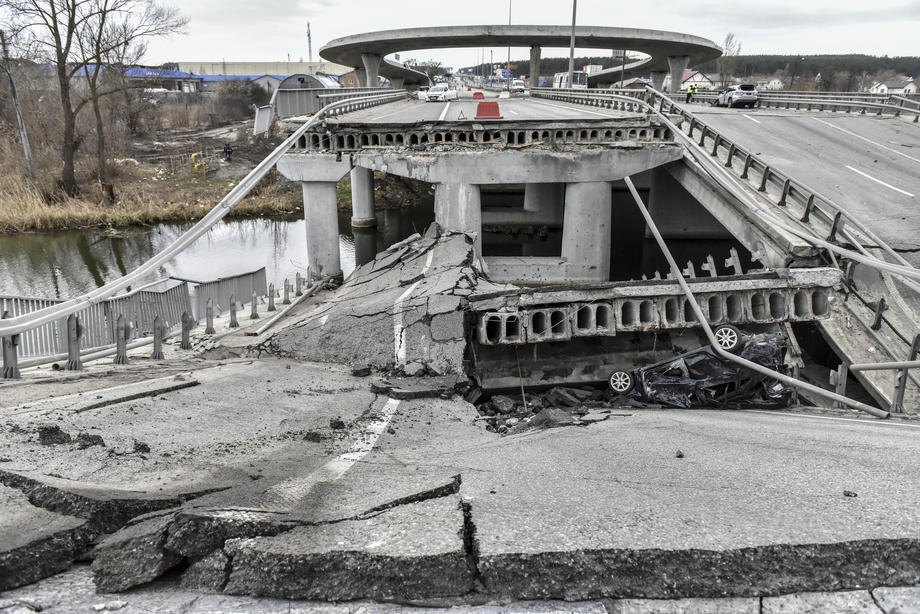
Therefore, I do not doubt that war is both a challenge and an opportunity for Ukraine. If we, as a state, offer our international partners a compelling, clear, and transparent mechanism for our recovery, Ukraine will receive significant support. We will have our own "Marshall Plan".
If we instead go around and ask: give us $50 billion, so that we just pour it into the budget, that will not happen. We will lose support as soon as news from the front line in Ukraine disappears from the front pages of the world media.
I can confirm that we are all already working on a so-called "Ukrainian Marshall Plan". In my opinion, we must repeat the steps taken by West Germany. They include the maximum liberalization of the economy, changes to the labor code, and reduction of bureaucracy. The German economic miracle began in 1948 when Economic Minister Ludwig Erhard called for the abolition of 90% of all bureaucratic procedures. Then, of course, there were many other measures. We should take this as an example.
Can the additional funding source come from the frozen assets and funds of the aggressor state to cover losses caused to Ukraine?
We are talking about at least $320 billion. In addition, our task is to ensure that at least part of the money from the payments for the Russian energy resources goes to the budget of Ukraine. We must develop this mechanism together with our international allies.
We now have the opportunity to make Russia pay huge sums of reparations to Ukraine. To this end, KSE and the government have already launched an online recording of damages done to Ukrainians. All these facts will be later presented to the courts for compensation from the frozen assets of Russia, its state-owned companies, and gold and foreign exchange reserves.
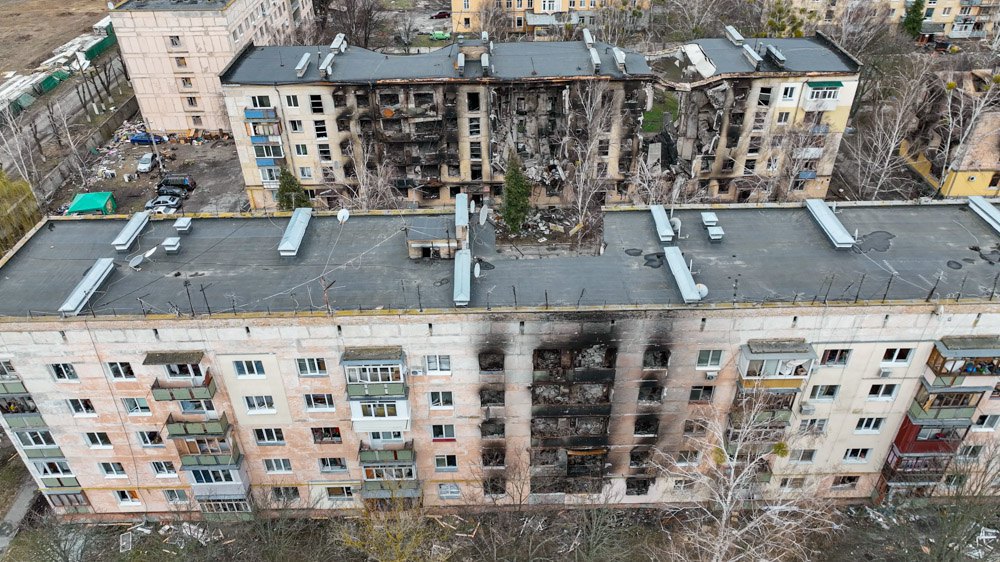
We will succeed if Ukraine combines all these processes to prepare the "Ukrainian Marshall Plan" for economic recovery, exports, industry, and high technology.
We already see how this successfully works on the example of the army. The Ukrainian military struck the enemy so effectively because their courage, dedication, and skills were backed up by the latest military technology and new modern weapons. Therefore, the Russian horde cannot advance: they fight with Soviet technology, while we fight using state-of-the-art technologies.
The same should happen in the Ukrainian economy. The "Ukrainian Marshall Plan" should offer a fishing rod, not a fish. At the same time, with the help of the United States and the European Union, we must withdraw the occupier's money to rebuild the infrastructure and implement the plan. In this case, we will have the result that European countries achieved after the Second World War - economic growth.
Moreover, according to UN research, Ukraine is now in a much better situation than West Germany immediately after the war. We are different because our state and financial system has withstood the blow of the military and will continue to work. Once we end the war, we must seize the unique opportunity for renaissance and growth. We paid a disproportionately high price for it.









